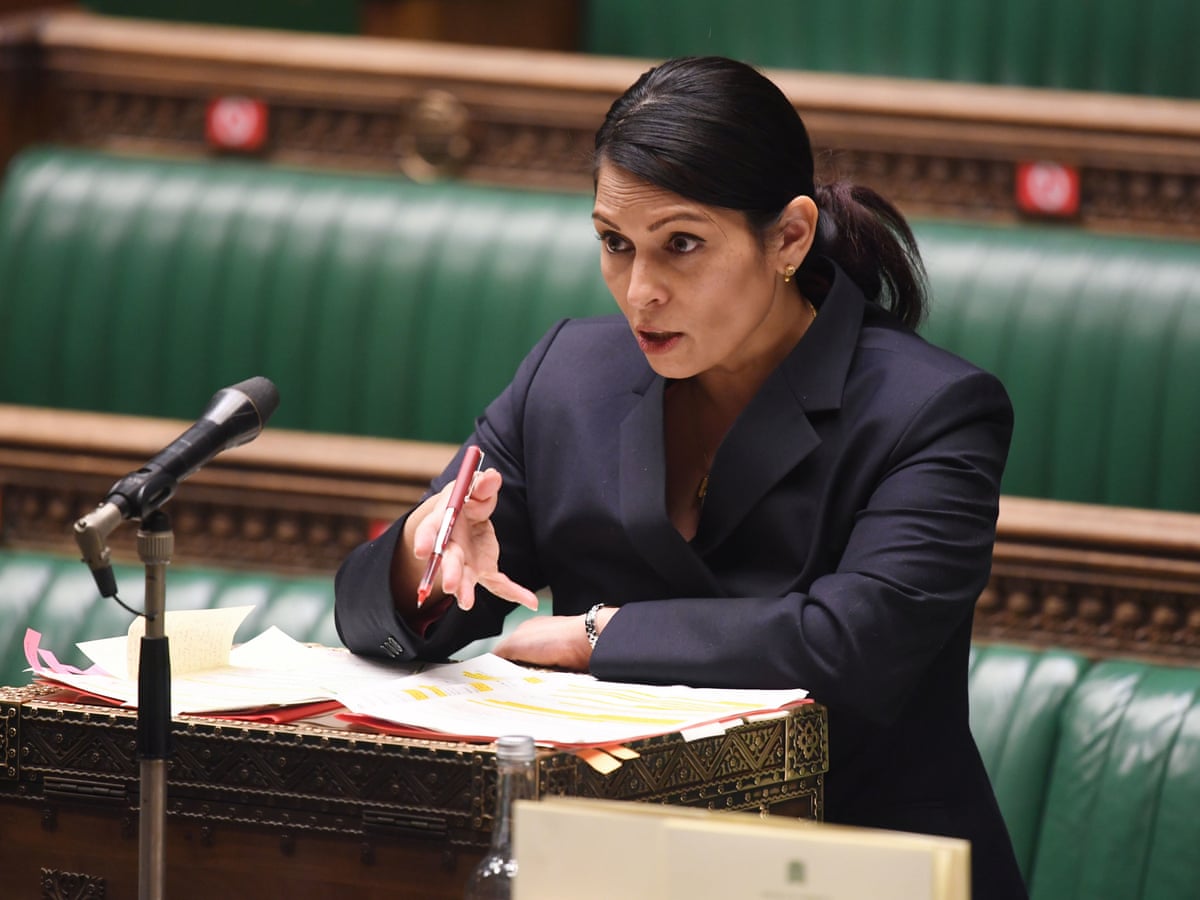New bill quietly gives powers to remove British citizenship without notice

Individuals could be stripped of their British citizenship without warning under a proposed rule change quietly added to the nationality and borders bill.
Clause 9 &ndash &ldquoNotice of decision to deprive a person of citizenship&rdquo &ndash of the bill, which was d earlier this month, exempts the government from having to give notice if it is not &ldquoreasonably practicable&rdquo to do so, or in the interests of national security, diplomatic relations or otherwise in the public interest.
Critics say removing citizenship, as in the case of Shamima Begum, who fled Britain as a schoolgirl to join Islamic State in Syria, is already a contentious power, and scrapping the requirement for notice would make the home secretary&rsquos powers even more draconian.
Advertisement
Frances Webber, the vice-chair of the Institute of Race Relations, said: &ldquoThis amendment sends the message that certain citizens, despite being born and brought up in the UK and having no other home, remain migrants in this country. Their citizenship, and therefore all their rights, are precarious and contingent.
&ldquoIt builds on previous measures to strip British-born dual nationals (who are mostly from ethnic minorities) of citizenship and to do it while they are abroad, measures used mainly against British Muslims. It unapologetically flouts international human rights obligations and basic norms of fairness.&rdquo
Home Office powers to strip British nationals of their citizenship were introduced after the 2005 London bombings but their use increased under Theresa May&rsquos tenure as home secretary from 2010, and they were broadened in 2014.
The requirement to give notice had already been weakened in 2018, allowing the Home Office to serve notice by putting a copy of it on a person&rsquos file &ndash but only in cases where their whereabouts were unknown.
The new clause would remove the need for notification altogether in a range of circumstances. It would also appear to be capable of being applied retrospectively to cases where an individual was stripped of citizenship without notice before the clause became law, raising questions about their ability to appeal.
Maya Foa, the director of Reprieve, said: &ldquoThis clause would give Priti Patel unprecedented power to remove your citizenship in secret, without even having to tell you, and effectively deny you an appeal. Under this regime, a person accused of speeding would be afforded more rights than someone at risk of being deprived of their British nationality. This once again shows how little regard this government has for the rule of law.
&ldquoThe US government has condemned citizenship-stripping as a dangerous denial of responsibility for your own nationals. Ministers should listen to our closest security ally rather than doubling down on this deeply misguided and morally abhorrent policy.&rdquo
Other proposed rule changes in the bill have already attracted criticism, including rendering claims from anyone arriving in the UK by an illegal route inadmissible, while criminalising them and anyone who seeks to save their lives, and giving Border Force staff immunity from prosecution if people die in the Channel during &ldquopushback&rdquo operations.
The Home Office said: &ldquoBritish citizenship is a privilege, not a right. Deprivation of citizenship on conducive grounds is rightly reserved for those who pose a threat to the UK or whose conduct involves very high harm. The nationality and borders bill will amend the law so citizenship can be deprived where it is not practicable to give notice, for example if there is no way of communicating with the person.&rdquo
&hellip as you're joining us today from India, we have a small favour to ask. With the world's eyes on the crucial UN climate summit, the Guardian will bring you the facts, negotiations, news and science. For years, climate experts have stressed that Guardian reporting - independent, rigorous, persistent and open to all - is a critical tool to confront the climate crisis, which is intensifying around the world. Leaders, influenced by powerful lobbies, are now set to make decisions that will determine our future.
We have no shareholders and no billionaire owner. Just the determination and passion to deliver high-impact reporting for the world, always free from commercial and political influence. Reporting like this is vital for democracy, for fairness and to demand better from the powerful. And we provide all this for free, for everyone, regardless of their ability to pay for it.
As such, tens of millions have placed their trust in us for the last 200 years, turning to us in moments of crisis, uncertainty, solidarity and hope. With more than 1.5 million supporters in 180 countries, our for open access journalism is better sustained, meaning we can reach more people. This helps everyone keep track of global events like the climate summit, understand their impact on people and communities, and become inspired to take meaningful action.
We take this emergency seriously as a news organisation: two years ago, we pledged to prioritise the climate crisis, and we've published some 6,000 pieces of environmental journalism since. We set ambitious targets to green our business, and have turned away from fossil fuel investments and advertising as a result. We are on track to meet our goals, including that of transparency, where we will continue to you on our progress.
But to keep working as we do - as an open, fiercely independent news organisation that focuses on the climate - we need your help. Every contribution, however big or small, counts. Support us today from just $1. If you can, please consider supporting us with a regular amount each month. Thank you.
source : www.theguardian.com